Are you considering moving to Wellington? The capital of New Zealand has plenty to offer for people of all ages and personalities.
In this article we will go through all the pros and cons of living in Wellington, New Zealand. Wellington is a vibrant and beautiful place to live, but it’s not without its downsides. By the end of this article you should have a pretty good idea if living in Wellington is for you or not.
- My Credentials
- Wellington, New Zealand – Quick Glance
- The Pros and Cons of Living in Wellington New Zealand
- Pro #1: It’s a gorgeous city
- Con #1: Housing prices are through the roof
- Pro #2: The city is walkable
- Con #2: The weather
- Pro #3: Surrounding nature
- Con #3: You have to go through Auckland to get just about anywhere
- Pro #4: Relaxed work environment
- Con: #4: It’s extremely seismically active
- Pro: #5: A lot of work opportunities for such a small city
- Con #5: Limited options in the restaurant scene
- Pro #6: Amazing breweries in the city and wineries nearby
- Con #6: You’re basically forced to fly Air New Zealand
- Pro #7: It’s a great place to raise children
- Con #7: Many houses lack insulation
- Pro #8: It’s a very safe city
- Con #8: New Zealand is just really far from the rest of the world
- Pro #9: Excellent nightlife scene
- Con #9: Everything costs and arm and a leg
- Pro #10: Wellingtonians love it so much they don’t want to leave
- Con #10: Mediocre public transportation
- Pro #11: It’s just fun for all ages
- Final Word
My Credentials
Let’s start with why you can trust the information in this article. With people writing anything online these days, it can be hard to distinguish between first hand experience and AI.
I called Wellington home for just over two years. I worked for a large engineering firm in an office downtown and walked to work every day. In those two years I explored every corner of Wellington and New Zealand as a whole, taking dozens of epic road trips across the country.
On top of that I’ve also lived on two other continents in Amsterdam, Groningen, Las Vegas, Washington DC, And Austin, TX. This gives me a unique perspective on what makes a city livable when compared to people that have spent their entire lives in one place.
Personally, I loved living in Wellington. It’s such a fun and exciting place to call home. The only reason I left was lack of work satisfaction and I struggled with being so far from where I’m from. If not for that, I would have stayed indefinitely like so many people do!
Wellington, New Zealand – Quick Glance
Population: 212,000 (435,000 metro area)
Time zone: New Zealand Standard Time (UTC + 12)
Climate: Temperate marine, mild summers and winters
Median home price in 2023: $797,000 NZD ($470,000 USD)
Average rent for 1 bedroom apartment in 2023: $2,500 NZD ($1472 USD)
Main industries: Government, international logistics, tourism, and film
The Pros and Cons of Living in Wellington New Zealand
If you’ve found this page you’re probably wondering if you should move to Wellington or not. So without further ado let’s go through the pros and cons of living in Wellington New Zealand. We will go through them in a pro, con, pro, con, etc format. Then you can make an informed decision if living in New Zealand’s capital city is for you!
Pro #1: It’s a gorgeous city
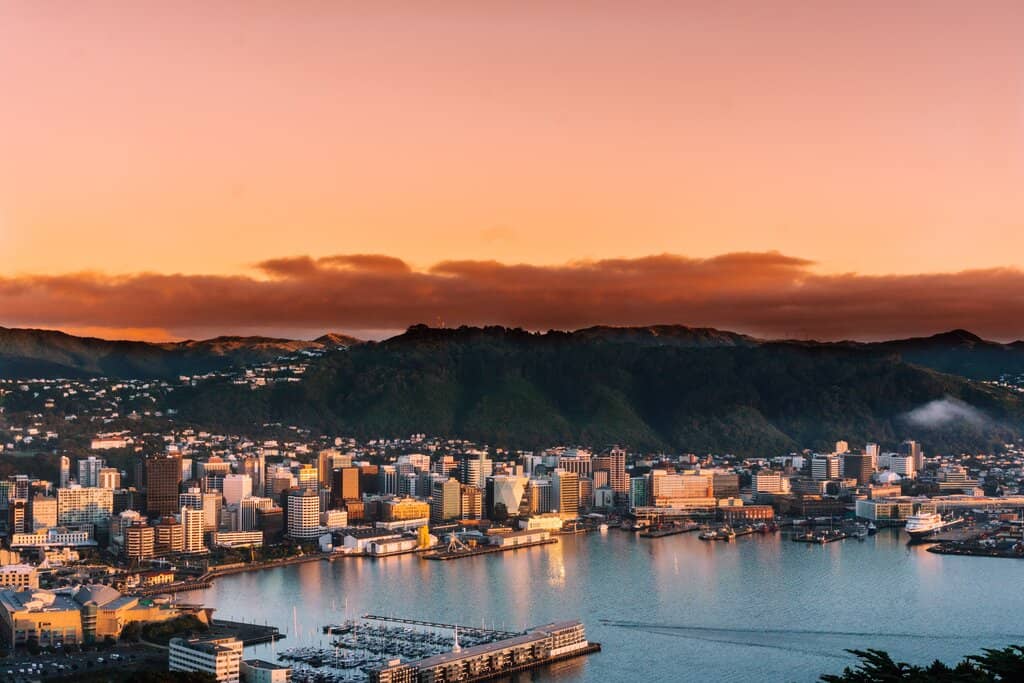
There is no denying that Wellington is absolutely beautiful. Now, by that I don’t mean the city’s architecture is beautiful. We are talking about its landscape here. Architecturally, Wellington actually leaves much to be desired. But geographically, it’s hard to imagine a more gorgeous location to build a city.
Located at the southern tip of New Zealand’s North Island on an expansive bay, downtown Wellington is built on reclaimed land. The reclaimed downtown land is the only part of the city that is flat, as the neighborhoods outside the city center blend into steep mountains and gorgeous rocky coves everywhere you look.
Any view from any hill or mountain top in Wellington is just stunning. From the top of any mountain you can see down to Wellington Harbour. And on nice, clear days, if you look south you can even see the South Island.
For perhaps the best view, however, head up to the Wellington Botanical Garden at the top of the Wellington Cable Car. Up here you get a view of the city center with the mountains to the east in the background.
Pretty much everywhere in New Zealand is flat out spectacular. But when it comes to New Zealand cities, Wellington takes the cake.
Con #1: Housing prices are through the roof
If you’re looking to buy a house in Wellington, I hope you have some serious savings. Real estate in the city is downright laughable. As of 2023, the average home price in Wellington is $874,000 NZD ($515,000 USD) and the Median home price is $797,000 NZD ($470,000 USD). When you compare housing costs to salaries, it’s rather difficult to see how folks in Wellington manage.
Real estate prices in Wellington doubled between 2013 and 2023, meaning they rose about 7% per year. They’re actually significantly down from their Covid-19 peak in mid 2022 of an unbelievable $1.4 million. But as of late 2023, they have started to rise again. No matter how you look at it, buying a house in Wellington is a serious financial burden for most Kiwis and immigrants.
To put some perspective on that, though, Wellington is nowhere near as expensive as Auckland, where the average home price is $1.09 million ($642,000 USD) and the median is $1.01 million ($595,000 USD). This is also well down from the Covid pandemic peak.
If you’re a renter in Wellington, unfortunately things aren’t a whole lot better. The average price for a one bedroom downtown is about $2,500 NZD ($1472 USD) per month. Most young people live in shared apartments with 2 or 3 other flatmates, at least. It’s the only way to get by.
Pro #2: The city is walkable
Wellington is small and compact. Only just over 200,000 people call Wellington city home. It’s a compact city that is super easy to get around by foot. Walking from one side of central Wellington to the other takes barely 20 minutes.
It’s even possible to walk to the neighborhoods outside of the city center. The suburbs, basically. I lived in the Brooklyn neighborhood, a good 150 meters above sea level up in the foothills of the mountains, and I walked to work in the central business district.
It took about 30 minutes each way, passing through residential streets, parks full of fern trees, and thriving downtown businesses. It was amazing to live in a quiet suburban neighborhood and walk to an office downtown, something you’d never get in larger cities.
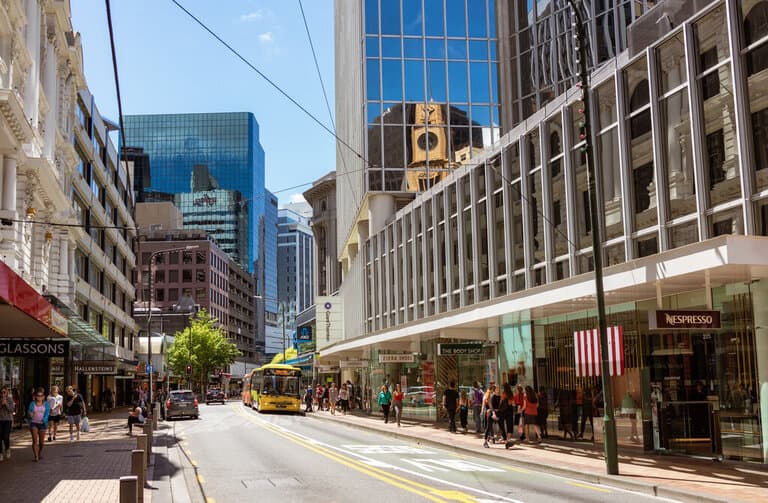
Now, while central Wellington is completely flat, the moment you get out of downtown Wellington it is constant hills and mountains. There are sidewalks and walking trails everywhere, but you will get a good workout walking around.
It’s completely doable to live in Wellington without a car. In fact, most young people who live in the city center do not have a vehicle. The only real benefit of a car is being able to get out of town whenever you want and going on big grocery runs. Should you live outside the city in one of the more distant suburbs like Petone or Porirua though, you’ll really want to consider having a car.
Con #2: The weather
Let’s talk about the weather for a moment. There is no sugarcoating it: the weather in Wellington sucks about 80% of the time.
Wellington’s location on the bay gives it a unique temperate climate. It hardly ever gets hot and rarely gets cold. The average summer high is only 68 degrees (20 C). And it’s literally never been hotter than 87 degrees (30.5 C).
If it reaches 80 degrees (27 C), people literally freak out. We had a football match stopped multiple times for water breaks on an 80 degree day when I had just moved to Wellington from the US. Coming from somewhere where 80 degrees was a cool summer day, I was amazed.
At the same time, winter is really not that cold. The bay keeps frigid temperatures away. It’s not warm, but it never dips below freezing. And by never I mean never. It’s only happened a handful of times in recorded history. The lowest temperature ever recorded in Wellington (at sea level) is 31.8 degrees (-0.1 C). In fact, the summer temperatures can sometimes be the same as winter temperatures. Summer really doesn’t exist in Wellington. It’s more of an urban legend.
That being said, when it is nice, the city is popping. Everyone is outside and the city becomes a vibrant hub of social activity. The locals say that nothing beats Wellington on a nice day, and no truer statement has ever been uttered.
On top of the bipolar temperatures, the biggest issues in Wellington are the wind and the rain. It’s not known as “Windy Wellington” for no reason. The wind can be downright brutal in Wellington, another effect of the bay.
Lastly, it rains a lot in Wellington and cloudy days are the norm. While summers are sunnier than winters, don’t expect green grass and sunshine every day. Summer days can still bring rain for weeks on end. Not really heavy rains, but more light constant rains. The kind of rain that makes you want to book a flight somewhere sunny.
Hopefully the weather doesn’t deter you from moving to Wellington. Just know that it is something that you will have to deal with. No one moves to Wellington for the weather, but it’s not a reason not to move there.
Pro #3: Surrounding nature
As I’ve stated before, Wellington is located on a beautiful bay surrounded by mountains on all sides. Nature and outdoor recreational opportunities are everywhere around Wellington.
Just outside of the city there are rugged forested mountains that you can explore on foot. If you live near the edge of the city you can even walk into these mountains, like I used to do when I would run up to the Wellington Wind Turbine, a large wind turbine high above the city.
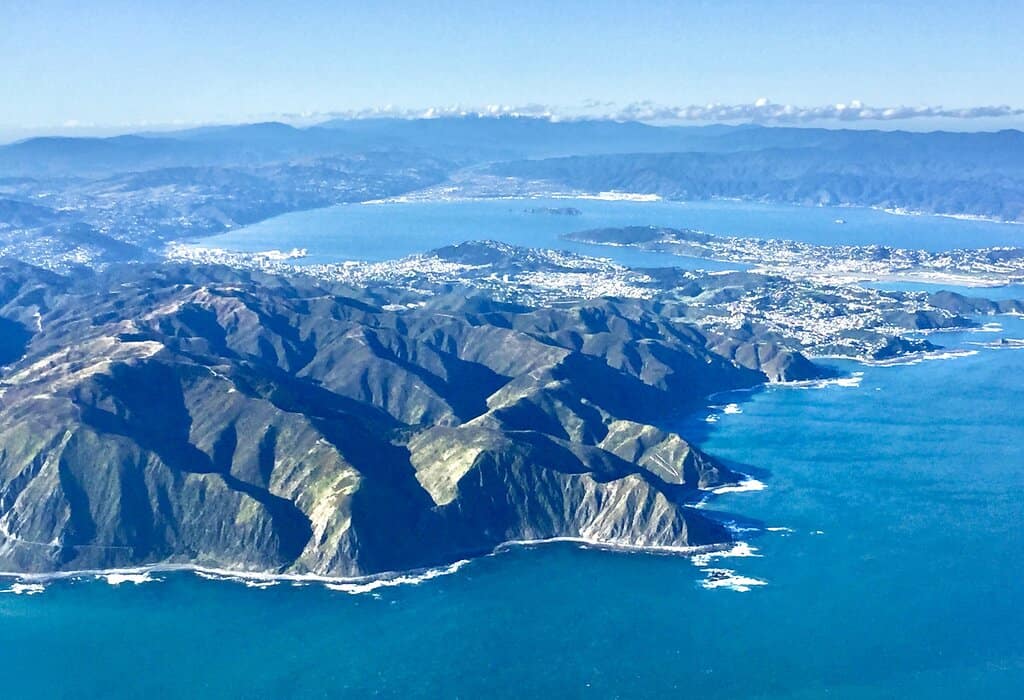
On the other side of the bay you’ll find East Harbour Regional Park. This is a popular park for Wellingtonians to hit the trails and try to find some kiwis, the indigenous flightless bird of New Zealand which gives the country its nickname.
Keep driving south from East Harbour and you’ll find an endless rugged coastline with sporadic lighthouses and more sheep than you can shake a stick at. And north of the city you’ll find the west coast of the North Island with its long sandy beaches and uninhabited islands.
No matter how you look at it, Wellington is surrounded by beauty. If you love the outdoors, it’s an amazing place to call home. If you hate being outside, well then… maybe it’s not for you!
Con #3: You have to go through Auckland to get just about anywhere
Being such a small city, Wellington is not well connected to the rest of the world. There are very few places you can get a direct flight to outside of New Zealand. It’s well connected to New Zealand and you can get a domestic flight literally anywhere, but if you want to leave the country, you’ll almost certainly be transferring through Auckland (though depending on which direction you are going you also have the option of laying over in Australia).
Wellington’s international routes only go to Australia (Sydney, Melbourne, Brisbane, and Gold Coast) and Fiji (Nadi). The airport’s runway is simply too short to take large planes that need significant distance to land safely. Talks are always in the works about expansion, but as of 2023 Wellington is still just a regional airport.
At least when you’re going to Auckland there is a flight literally every hour, so you have options. Oftentimes, however, you will find yourself spending a night in Auckland or the Auckland airport on the way somewhere international due to the international flight times out of Auckland. I’ve spent the night in the Auckland airport after a late arriving international flight more times than I care to remember.
Pro #4: Relaxed work environment
When I say Wellington’s work culture is relaxed, I mean it is relaxed. Most people work 40 hours a week and not a minute more. Beer in the afternoon on a Friday is not uncommon. And mid-day breaks for football matches are just part of being on the office indoor football team.
Kiwis get their work done, but it’s not the most important thing in their lives. Coming from the United States, I was amazed at how chill office life was. Even after moving away and going to the Netherlands I still longed for the relaxed work environment of New Zealand. I felt that even though there was not a lot of pressure, I performed better because of that.
When I worked in a big office in the city center, we often went out for lunch, sometimes spending well over an hour. Morning and afternoon breaks were commonplace, and every Friday we had company sponsored beer loaded into the fridge for whoever wanted to stay around after 5:00 and get tanked (unfortunately most companies don’t do this anymore though). And did I mention the mid-day football matches?
Work culture in Wellington is literally the polar opposite of work culture in most of the United States. When I think about what I miss most about life in Wellington, the work culture comes near the top of the list.
Con: #4: It’s extremely seismically active
If you’re considering moving to Wellington, you probably already know that most of New Zealand is prone to significant earthquakes. Wellington lies right on the Ring of Fire, one of the most active fault lines in the world. Like, the fault line literally goes right through central Wellington.
The back to back earthquakes of 2010 and 2011 in Christchurch raised great alarm in Wellington, which is in a far more seismically active zone than Christchurch. Since then, the city has invested billions of dollars in seismically strengthening buildings so that they can avoid a situation like Christchurch, where hundreds of people died and the central business district was reduced to rubble.
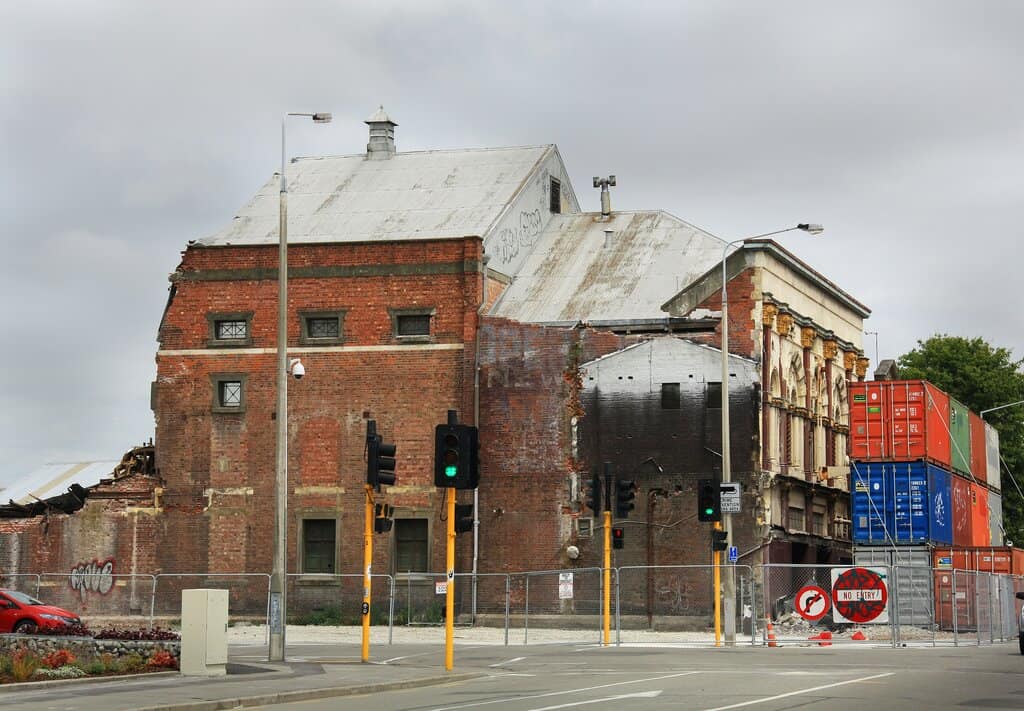
In fact, seismic strengthening of buildings is what I did for two years in Wellington. As a structural engineer, I assessed about a dozen buildings in Wellington for earthquakes and designed strengthening schemes for the ones that were not up to current codes. The seismic strengthening effort continues to this day, and it will probably go on forever. It takes a lot of time and money to upgrade as many buildings as Wellington has.
The city has done an amazing job of upgrading their buildings and constructing new buildings to be resistant to earthquakes, but nothing is ever guaranteed. Earthquakes hit the city quite often, though there has not been a very strong one in recent history. If you live in Wellington, you will feel an earthquake at some point, so be prepared.
If you don’t want to worry about earthquakes but still want to live in New Zealand, then Auckland is probably where you want to go, as it’s much less seismically active.
Pro: #5: A lot of work opportunities for such a small city
Even though Wellington is a tiny city, it seems to have a ton of job opportunities for professionals. No matter what line of business you are in, there will be options in Wellington. And if you’re a structural engineer like me, the world is your oyster!
Some of the biggest industries in Wellington are the federal government, tourism, the film industry (Lord of the Rings anyone?) and shipping/logistics. Finance is also a growing industry, and the city is home to the New Zealand Stock Exchange.
Basically, no matter what you do, there’s a job for you in Wellington. Hooray!
Con #5: Limited options in the restaurant scene
Let me preface this by saying that things have gotten a hell of a lot better since 2015 when it comes to the restaurant scene. In the early 2010s and years prior, Wellington was seriously struggling to offer its residents anything other than popular Asian cuisines and contemporary western restaurants.
While more restaurants have opened in the late 2010s and early 2020s, Wellington still leaves a lot to be desired when it comes to food choices. If you want Chinese, Thai, Indian, Malaysian, Japanese, or western (steaks, burgers, salads, etc), you’re golden. There are some amazing restaurants serving those cuisines.
But if you’re looking for something a little more exotic, you might struggle still. In my day there was literally not a single Greek restaurant in Wellington. If I wanted Greek food I had to cook it myself. Or a German restaurant. Or a sit-down Middle Eastern restaurant.
There are now two Greek restaurants in Wellington, as well as multiple places to get Middle Eastern food. Still no German place though. As I’ve said before, it’s a small city. There is not a huge demand for exotic cuisines. So if you want Ukrainian soup or Bosnian cevapi, you’re just gonna have to cook it yourself at home.
Pro #6: Amazing breweries in the city and wineries nearby
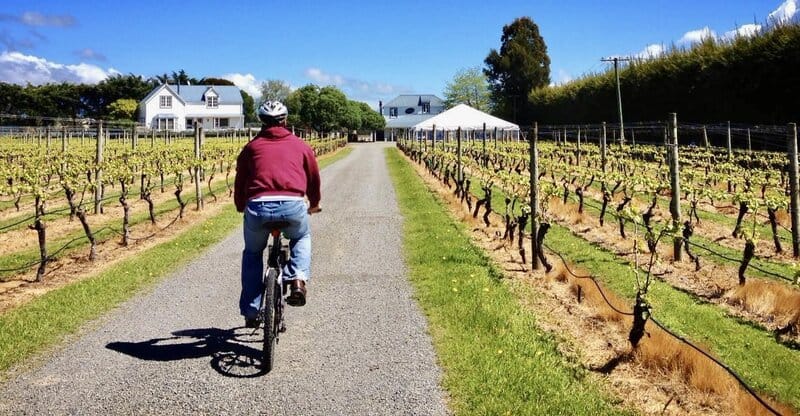
Wellington is the craft brewing capital of New Zealand. Believe it or not, New Zealand makes the best IPAs in the world. In overall quality of beer production, it’s second only to the United States. Beer in New Zealand is seriously good, and Wellington is where a lot of the best brewing goes on.
There are a ton of amazing craft breweries in Wellington, which says a lot considering the population is so small. Beer is serious business here. If you want to check out all the best beers that Wellington has to offer at once, head to Hashigo Zake downtown, where you can find just about any beer your heart desires. There are also dozens of other craft beer bars that feature local brews on tap. You’ll never go thirsty in Wellington.
The best beer in all of New Zealand (and possibly the world) is made by Tuatara Brewing in Paraparaumu, about a 45-55 minute drive north of Wellington. If you are a beer lover, Tuatara will be your second home.
Wellington is also about 2 hours away from one of the most beautiful and charming wine regions in New Zealand. The Martinborough Wine Region, not to be confused with Marlborough, where all that wine you find in the US, UK, and elsewhere in the world is produced, is a stone’s throw away from Wellington. It makes a great summer getaway for the night or a day trip.
Martinborough is small and the wineries are very small. If you want Martinborough wine you have to go to Martinborough. It makes for a cozy atmosphere, and the wine is damn good! If you want a slightly larger, more beautiful wine region, Hawke’s Bay is about 4 hours away and good for an overnight stay.
Con #6: You’re basically forced to fly Air New Zealand
Let’s go back to flying for a moment. Being such a small airport, not a whole lot of flights go in and out of Wellington unless they’re going to Auckland. And since less than 5 million people live in New Zealand, there aren’t a whole lot of airlines operating in the country.
Air New Zealand basically has a monopoly over air travel in New Zealand. Jetstar operates routes from Wellington to Auckland, Christchurch, and Queenstown, and Qantas goes to Melbourne and Sydney, which gives Air New Zealand some competition, but if you want to go somewhere else you literally do not have a choice.
You have to fly Air New Zealand, which means they can charge whatever the hell they want. Tough luck. Your other option is to drive, which, if you’re going to the South Island, involves taking a long and expensive ferry ride.
Flying to Auckland can be dirt cheap, same with Christchurch. But if you want to fly somewhere where Air New Zealand is the only carrier you’re SOL. They will charge a lot and their service will be disappointing to say the least.
Air New Zealand’s international service is great (like if you’re flying Auckland to LA), but their domestic service is piss poor. But look at it from their standpoint. Why improve domestic service? The customer literally has no choice!
I always found it funny when they would announce “thank you for choosing Air New Zealand” on a short domestic route. I didn’t choose! I had no other option!
Pro #7: It’s a great place to raise children
For the most part, Kiwi kids in Wellington are pretty damn happy. They get an excellent education, access to outdoor recreation, and a steady social network. For parents, you’re sending your kids to a good school, whether it’s private or public. It’s just an all around good place to raise children.
For expecting parents, New Zealand gives pretty generous parental leave. The primary caregiver – whether that is the mother or father – is entitled to 6 months of paid leave and then another year of unpaid leave with a guaranteed job upon return (so long as you’ve worked at least 12 months for the company). Paid leave for partners, which in most cases would be the father, is only two weeks, but they are entitled to split that year of unpaid leave.
Once you return to work, childcare costs in Wellington, as in all of New Zealand, can be steep. The average cost of childcare in Wellington is about $1730 NZD per month, or $400 per week. But the government does provide some financial assistance in the form of 20 hours of free childcare for 3-5 year olds. So it’s not as expensive as it could be.
Higher education in New Zealand is also of high quality. While there are no Yales or Oxfords, the universities in New Zealand provide world class education, especially when it comes to engineering, computer science, and information technology. There are 8 universities in New Zealand, and your kids will get a great education going to any of them.
Con #7: Many houses lack insulation
For decades, wood houses in Wellington and much of New Zealand were built without any insulation in the walls or roof. That might sound crazy, but it’s true. With a temperate climate, insulation just wasn’t deemed necessary for generations. It wasn’t until 1978 that federal regulations started requiring builders to include thermal insulation in new home construction.
When those regulations came, however, no requirements were made to upgrade old homes. Many of Wellington’s neighborhoods are quite old, with houses dating back well before 1978. This means there is still a large building stock in the city of uninsulated houses.
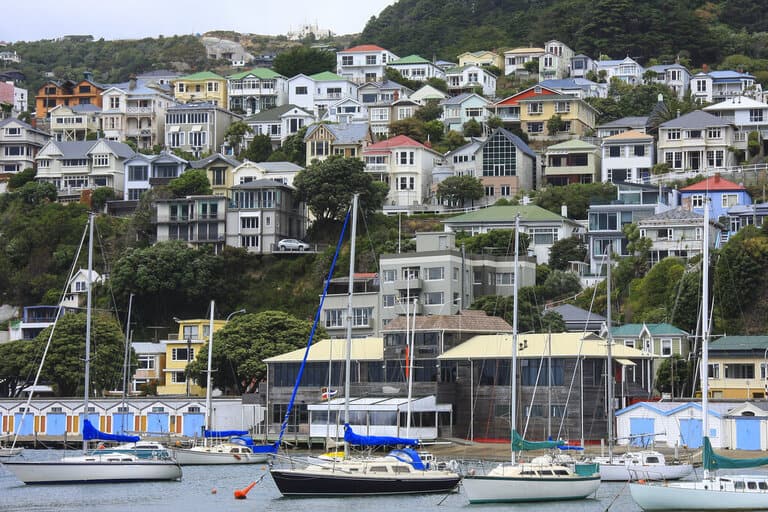
If you’ve never been in an uninsulated wood house before, let me paint a picture for you. It’s a cold night, 4 degrees Celsius (39 F). You’re sitting in your living room watching TV with a giant space heater pointing right at you, bundled up under a thick blanket. Even with the heater and the blanket, you’re still feeling chilled to the bone because it’s a balmy 7 degrees (45 F) inside your house.
You go to bed with hot water bottles between the sheets and you don’t want to get out from under the covers when the morning comes. This is winter in an uninsulated house. On top of the chilliness, it’s humid and damp inside most of the year. Towels never dry and mold grows easily. Upkeep is needed in an uninsulated house.
The good news is that many homeowners have upgraded their houses and also installed double paned glass windows, which retain heat better. That, and new homes are constantly under construction. Apartment buildings also don’t have this problem. It’s really only old wood houses.
Should you rent an old house, however, just be prepared to be cold!
Pro #8: It’s a very safe city
Wellington is one of the safest cities to live in the entire world. The crime rate is 33.4 per 100,000 residents, and that’s all crime, not just violent crime. To put that in comparison, New York City’s violent crime rate is about 20x more than Wellington’s total crime rate.
Homicides are pretty rare in Wellington and New Zealand. While the police department does not publish homicide data by city, the entire country only averages 74 murders per year, and a sizable portion of those is related to Maori gang violence around Auckland. Those numbers also include the 2019 Christchurch Mosque shootings, which skew them a bit.
Basically, it’s safe for anyone to walk around Wellington by themselves after dark. You should still take the proper precautions. It’s not that violent crime does not ever happen, it’s just that it is not common.
Con #8: New Zealand is just really far from the rest of the world
If you’re originally from New Zealand, you can ignore this one. But if you’ve come to New Zealand as an expat (and you’re not from Australia), one of the big challenges is getting used to just how far you are from the rest of the world, especially living in Wellington, which requires a 1 hour flight to Auckland and a change of planes to get just about anywhere else.
Most people around the world that have never been to New Zealand have no concept of just how far south it is. “You’re so close to Asia” they will tell you. Sure, if you consider an 11 hour flight to Tokyo or a 14 hour flight to Beijing “close”! You can get from New York to Tokyo in almost the same time as from Auckland and well faster than from Wellington.
Asia is not close. Don’t let anyone tell you that it is. The only international destinations that New Zealand is convenient to are places like Australia, Fiji, the Cook Islands, and other isolated pacific islands. You’re literally in the middle of nowhere in New Zealand.
Pro #9: Excellent nightlife scene
For a small city, Wellington sure knows how to party. The central nightlife district is the city center along Courtenay Place, a main street lined with restaurants, bars, pubs, and nightclubs. Side streets lined with more bars and restaurants extend from Courtenay Place in both directions. If you’re trying to get your drink on, it’s the place to be.
Most of the bars are open till at least 2 AM, with many staying open till 4 AM on Friday and Saturday nights. It’s always quite loud and energetic on weekend nights and will satisfy any crave for getting your party on.
The clientele at these bars are mostly young, however, so if you’re in your 30s or older, you might feel more comfortable going out elsewhere in the city. There are tons of other bars and breweries scattered around downtown that are not full of drunk 19 year olds.
Either way, no matter what you’re into, be it dancing all night, sipping on craft beer with friends, or meeting other singles over cocktails, there is a place for you in Wellington’s nightlife scene.
One thing to note for expats moving to New Zealand is that in Wellington – as in all of New Zealand – bars have bouncers outside checking IDs and they will not let you in if you appear drunk. Seems counterintuitive but that’s how it goes. So if you get hammered at a bar and try to go to the next one, you might not be let in.
Con #9: Everything costs and arm and a leg
This is more of a greater New Zealand as a whole problem, but everything in Wellington is downright pricey. It’s the second most expensive city in New Zealand after Auckland, and you’ll feel that at the supermarket, shops, and restaurants.
Be prepared to spend a significant portion of your salary on food. The grocery stores in Wellington are great, they’re just expensive. New World and Countdown are the two main competing supermarkets. There is really no inherent difference in them when it comes to prices. Produce is priced by what’s in season, so the prices fluctuate. If it’s not in season it’s ridiculously expensive, even if it’s grown locally. Some examples of in season prices:
- Apples per kilo: $5 NZD
- Kiwis per kilo: $7 NZD
- Tomatoes per kilo: $6 NZD
Meat and dairy is also crazy expensive, even though New Zealand’s agriculture sector is massive. And when you’re picking up some local Marlborough wine, it’s often cheaper to buy it at Trader Joe’s in the US than it is to buy it in New Zealand. Don’t ask me why. It’s the great mystery of New Zealand wine exports.
Restaurant prices are also on the high side in Wellington, though thankfully you don’t have to tip and tax is included. It still adds up quick though, and the menu prices are difficult to fathom when you compare them to your salary. A few examples:
- Indian chicken curry at an Indian restaurant: $23 NZD
- Burger and fries at a decent sit down restaurant: $29
- Fast food chicken kebab: $13
- Lamb shank at a nice restaurant: $45
- Glass of wine: $13
- Standard (non-IPA) beer: $13
So yeah, going out will cost you, but so will staying in. Just be prepared to spend a lot of money to live an enjoyable life in Wellington. Many would argue it’s worth it though!
Pro #10: Wellingtonians love it so much they don’t want to leave
People who call Wellington home usually love it so much that they can’t imagine living anywhere else in New Zealand. When you get in with a group of friends in Wellington, chances are most of them will be there for life. So you know you have a reliable social network without having to worry about people moving away.
Now, there are two caveats to this. First, if you’re an expat, chances are you will eventually leave so maybe this isn’t that important. The expat community is blended into the local community in Wellington, so it’s not like all your other friends will be expats too. But the more expats you know, the more likely you are to have friends leave.
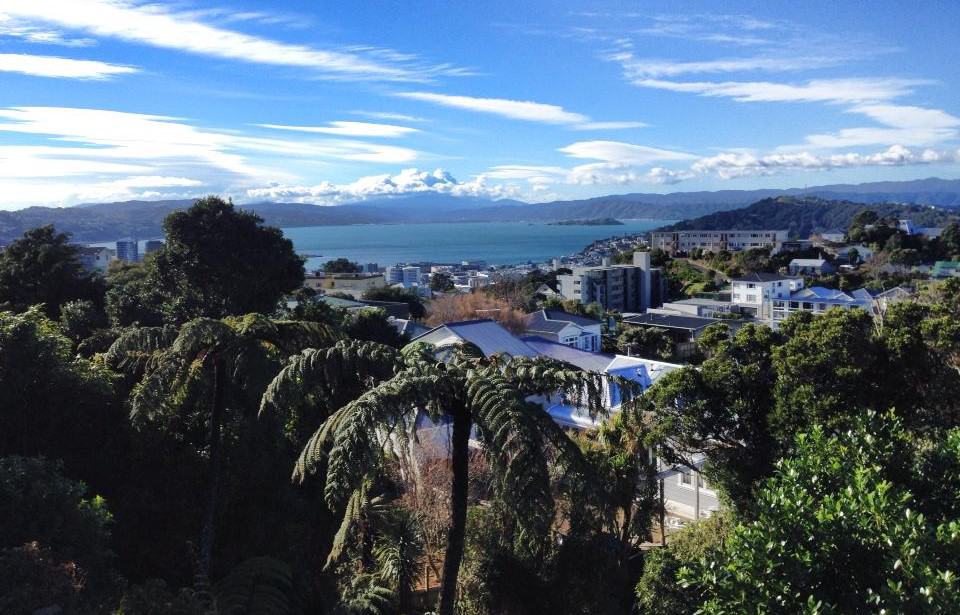
Second, most young New Zealanders leave the country in their mid to late 20s to do what is known locally as their “overseas experience”, or OE for short. This is a rite of passage for young Kiwis. Most spend 2-3 years living abroad before returning home.
The most common destination for OE is London. It’s crazy how many Kiwis are living in London at any given time. But other popular destinations are Australia, Canada, and elsewhere in the UK. As Commonwealth nations, young New Zealanders do not need a work permit. For this reason, it’s rare for a Kiwi to come to the US for their OE, which requires a work visa.
After OE most Kiwis return to their hometown, though many experiment with living in other New Zealand cities. So if you’re young, in your mid 20s or so, literally everyone you know will leave for their OE at some point. If you’re in your 30s or older though, your social network in Wellington will be pretty grounded.
Con #10: Mediocre public transportation
There is a bus service in Wellington known as the Metlink. The bus service covers the entire city, but nobody would say it’s extensive. There are plenty of places you can live where you’d have to walk 20 minutes or so to a bus stop.
The buses also get really crowded on rainy days, which as we’ve already covered are quite common in Wellington. There is nothing really wrong with the bus service. It’s just not one of the city’s superlatives.
There is a train that connects Wellington to Lower Hutt, Upper Hutt, and the rest of the North Island, but it’s not really for daily usage unless you live in the suburbs and don’t mind paying for a train ticket every day. KiwiRail is a fine train service, it’s just expensive as hell.
If you do happen to take the KiwiRail north out of Wellington, be sure to stop to admire the beautiful train station in Upper Hutt that yours truly designed in 2015!
Pro #11: It’s just fun for all ages
Wellington is just a happening and lively place. No matter how old you are or what you enjoy doing, there is something for you in Wellington.
Don’t like going out drinking? Then maybe join one of the many sports clubs in town. Don’t like sports? The arts scene is vibrant in Wellington. Or perhaps you just enjoy sitting at a quiet café with a flat white coffee. Wellington is for you!
Final Word
Hopefully this gave you a pretty good idea of if living in Wellington New Zealand is a good fit for you or not. We’ve gone over all the pros and cons of living in Wellington and provided you with the information you should need to make an informed decision. If you have any other questions about living in Wellington, don’t hesitate to reach out!


1 comment
I love Wellington, u also have Lower Hutt & Upper Hutt, & Petone & Porirua all within Wgtn, love it, I have lived in Wgtn 50 yrs & I literally wouldn’t live anywhere else.
Best shops, walks etc.